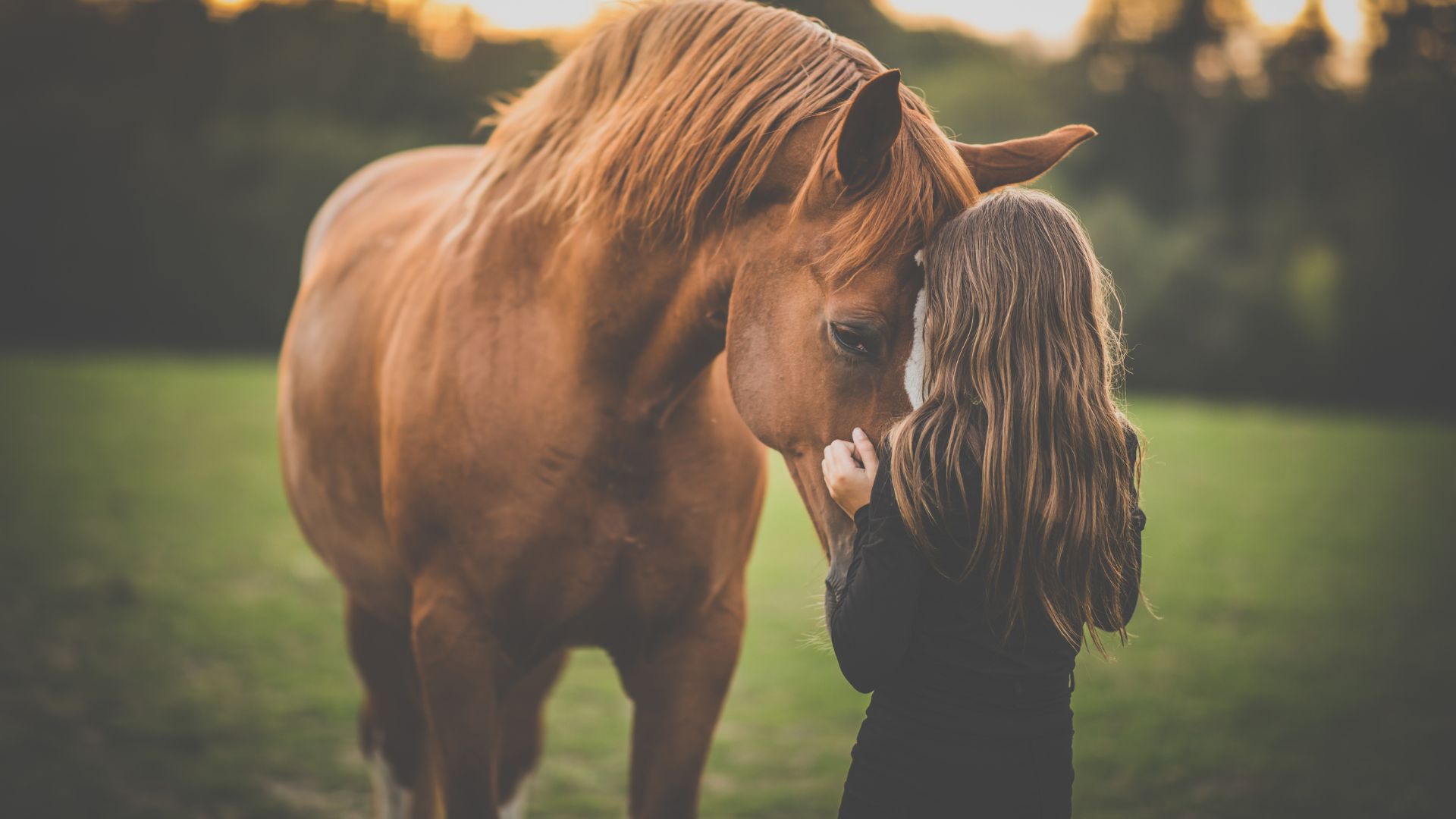Equine therapy, also known as horse therapy, offers incredible benefits to individuals dealing with various emotional and physical challenges.
Horses, with their intuitive nature, provide a unique form of therapy that promotes healing and personal growth. Let’s see the best horse breeds that are often used in equine therapy.
Each breed has its own unique characteristics, making them ideal partners in the therapeutic process.
1. American Quarter Horse
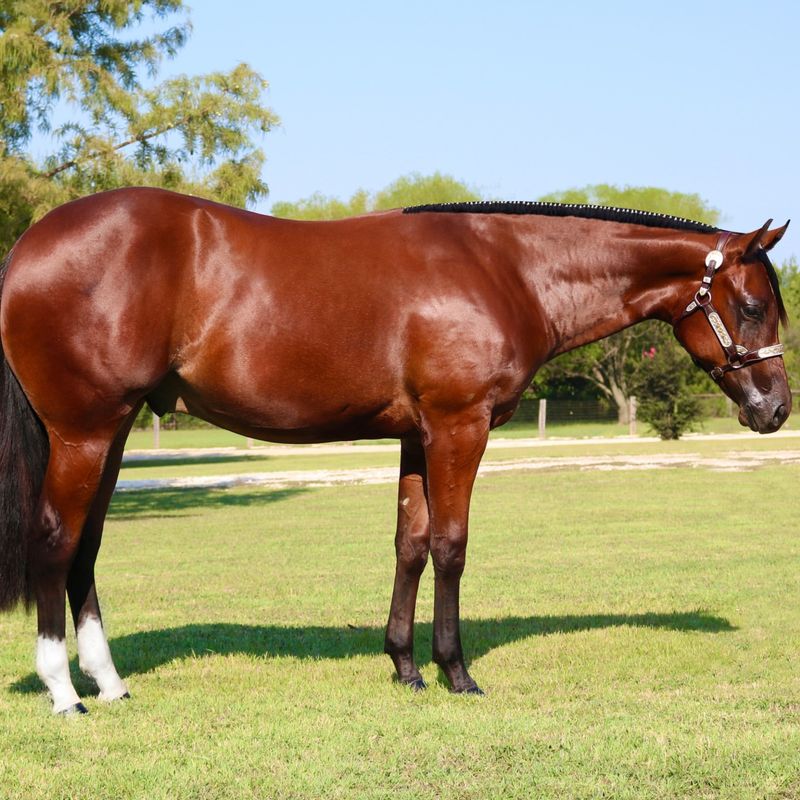
The American Quarter Horse is renowned for its calm demeanor and strong, muscular build. These traits make it an exceptional choice for equine therapy, where a gentle and patient temperament is essential.
The breed’s versatility is another significant advantage, as it can easily adapt to different therapeutic needs, whether providing physical support or emotional comfort. This breed is particularly effective in working with children and adults who require steady and reassuring companionship.
Their intuitive nature allows them to respond well to the emotions of the individuals they interact with, creating a harmonious therapeutic environment. Moreover, American Quarter Horses are known for their intelligence and willing nature, making them easy to train for specific therapeutic activities.
Their strong bond with humans helps participants in therapy feel understood and supported, fostering a sense of trust and safety. This connection can lead to profound breakthroughs in personal development and emotional healing.
2. Thoroughbred
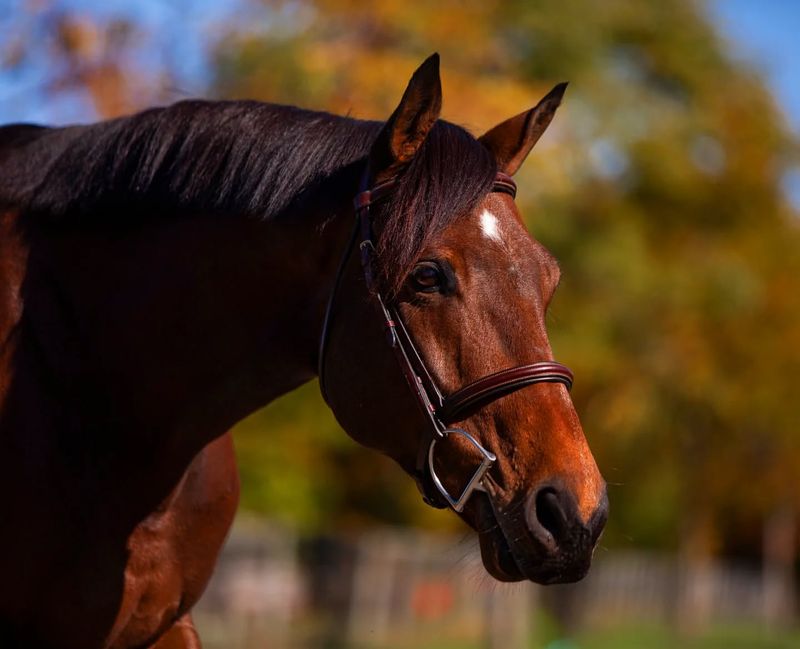
Thoroughbreds, famous for their speed and agility, bring a dynamic presence to equine therapy. Their spirited nature and athleticism contribute positively to therapy sessions, especially for individuals who thrive on energy and movement.
While they are known for racing, Thoroughbreds exhibit a surprising gentleness in therapeutic settings. In equine therapy, they are excellent at helping individuals overcome fear and build confidence.
The bond formed with a Thoroughbred can be empowering, encouraging participants to challenge themselves and push beyond their comfort zones.
Moreover, Thoroughbreds are known for their sensitivity and ability to perceive emotions, making them adept at connecting with participants on a deeper level.
This connection can lead to meaningful emotional breakthroughs and personal growth, making the Thoroughbred a valuable partner in equine therapy.
3. Arabian Horse
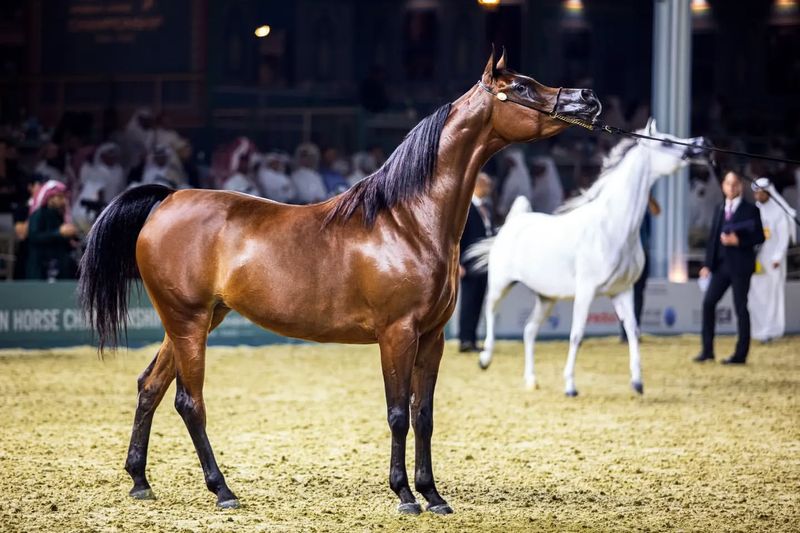
The Arabian Horse, with its elegance and charisma, offers a unique therapeutic experience. Known for their intelligence and sensitivity, Arabians excel in creating strong emotional connections with therapy participants.
Their distinctive appearance, characterized by a refined head and high tail carriage, adds to their allure and captivates those who work with them. Arabians are superb at providing emotional support, making them ideal for individuals dealing with anxiety or trauma.
Their empathetic nature allows them to connect deeply with participants, fostering an environment of understanding and compassion. In addition to their emotional support, Arabian Horses are physically capable and versatile, making them suitable for various therapeutic activities.
Their presence often brings a sense of calm and reassurance, which is essential for productive therapy sessions. Overall, the Arabian Horse’s combination of beauty, intelligence, and empathy makes it a standout choice for equine therapy.
4. Morgan Horse
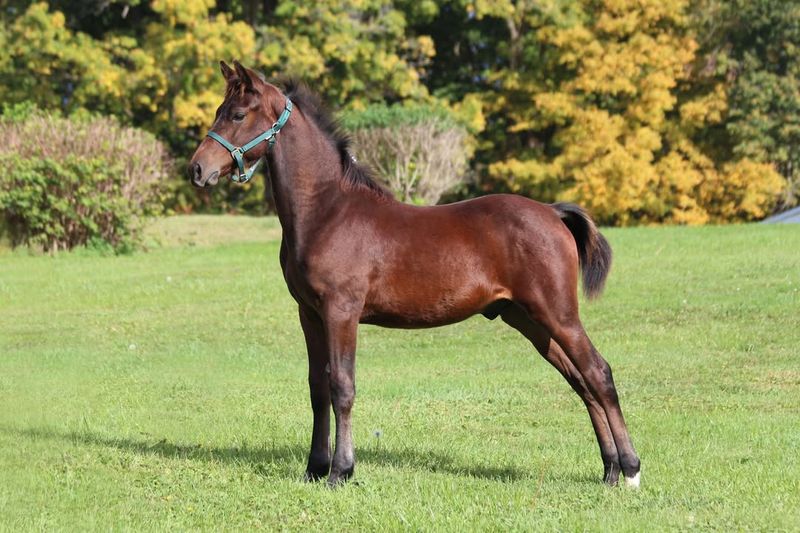
Morgan Horses are celebrated for their versatility and strength, which make them exceptional candidates for equine therapy. Their friendly and gentle demeanor allows them to connect well with people of all ages, providing comfort and stability in therapeutic settings.
The Morgan’s willingness to please and intelligence make them easy to train for a variety of therapeutic activities. Whether engaging in physical exercises or offering emotional support, Morgans excel in adapting to the needs of their human partners.
Furthermore, their compact size and sturdy build provide the physical support necessary for individuals requiring balance and stability.
The Morgan Horse’s gentle and approachable nature fosters an atmosphere of trust and security, vital for facilitating emotional healing and growth. These qualities make the Morgan Horse a beloved choice in the world of equine therapy.
5. Appaloosa
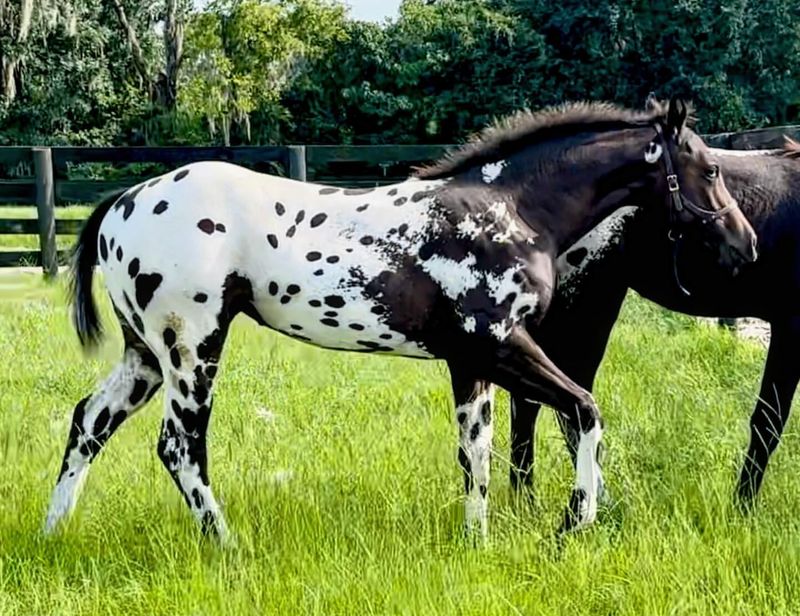
Appaloosas, with their distinctive spotted coats, bring a unique charm to equine therapy. Known for their intelligence and gentle disposition, they are excellent companions for individuals seeking emotional and physical healing.
This breed’s calm nature makes them approachable, helping to ease anxiety and build trust with therapy participants. Their striking appearance often serves as a conversation starter, engaging individuals and encouraging open communication.
Appaloosas are particularly effective in sensory therapy, where their unique coat patterns stimulate visual engagement. Their strong, sturdy build provides physical support, making them suitable for various therapeutic activities.
Overall, the Appaloosa’s combination of intelligence, gentle nature, and distinctive appearance makes them a standout choice for equine therapy.
6. Paint Horse
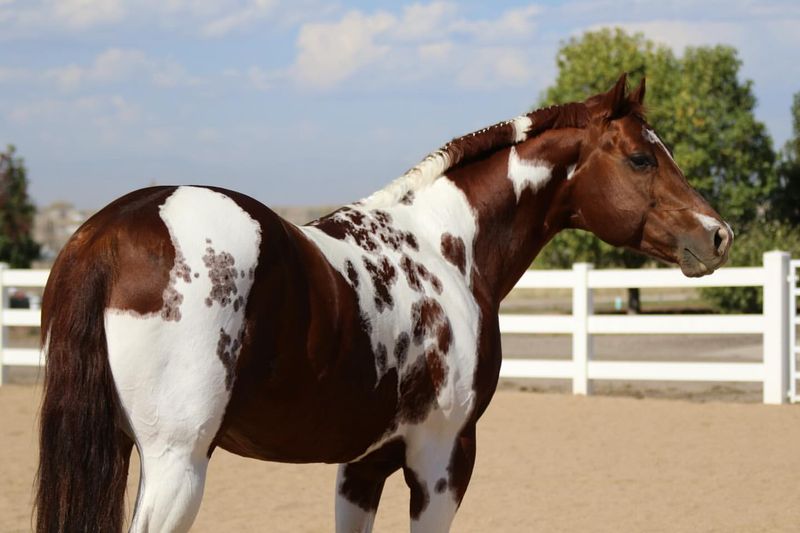
Paint Horses, with their colorful and eye-catching coat patterns, bring vibrancy to equine therapy sessions. Their friendly and approachable nature makes them excellent partners for individuals of all ages seeking therapeutic support.
This breed’s playful disposition helps create a fun and engaging environment, encouraging participants to relax and open up during therapy. Their distinctive appearance often sparks curiosity and interaction, promoting communication and connection.
Paint Horses are also known for their versatility and adaptability, making them suitable for various therapeutic activities. Whether offering emotional support or participating in physical exercises, their calm and steady nature provides a comforting presence.
The Paint Horse’s combination of beauty, friendliness, and versatility makes them a popular choice in equine therapy.
7. Clydesdale

Clydesdales, with their impressive size and gentle nature, bring a comforting presence to equine therapy. Known for their strength and calm demeanor, these gentle giants are ideal for individuals seeking stability and reassurance.
Their imposing stature can be empowering, helping participants build confidence and overcome fear. Despite their size, Clydesdales are incredibly gentle and patient, making them approachable for individuals of all ages.
In therapeutic settings, Clydesdales excel in providing physical support, especially for those requiring assistance with balance and coordination. Their nurturing presence fosters a sense of safety and trust, essential for emotional healing and personal growth.
The Clydesdale’s blend of strength and gentleness makes them a valued partner in the world of equine therapy.
8. Friesian Horse
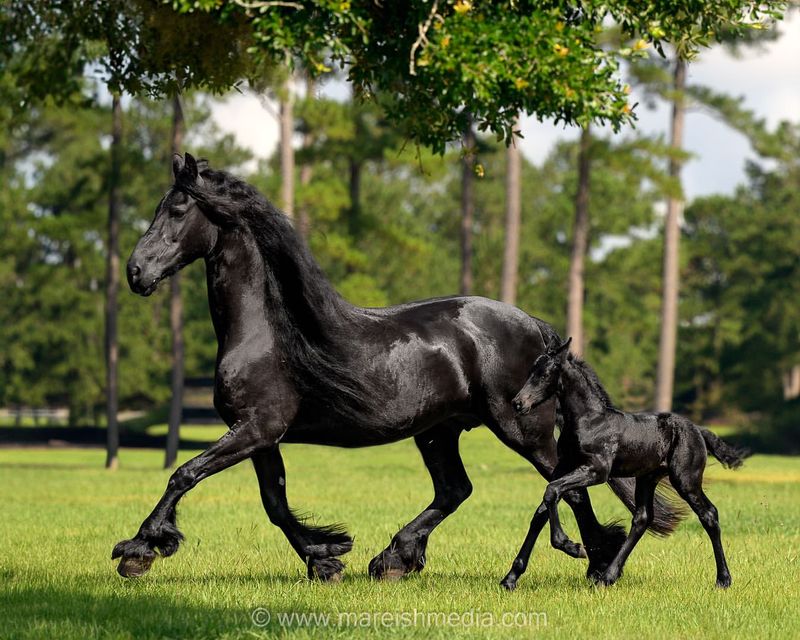
The Friesian Horse, with its striking appearance and gentle nature, offers a unique and calming presence in equine therapy. Known for their flowing manes and tails, Friesians captivate with their beauty and grace, creating a serene atmosphere in therapeutic settings.
Their gentle and patient temperament makes them ideal for individuals seeking emotional support and comfort. Friesians are particularly effective in helping participants feel grounded and centered, promoting relaxation and a sense of peace.
In addition to their emotional support, Friesians are versatile and capable of participating in various therapeutic activities.
Their strong bond with humans fosters trust and connection, essential for effective therapy. The Friesian Horse’s combination of beauty, grace, and gentleness makes them a cherished choice for equine therapy.
9. Gypsy Vanner
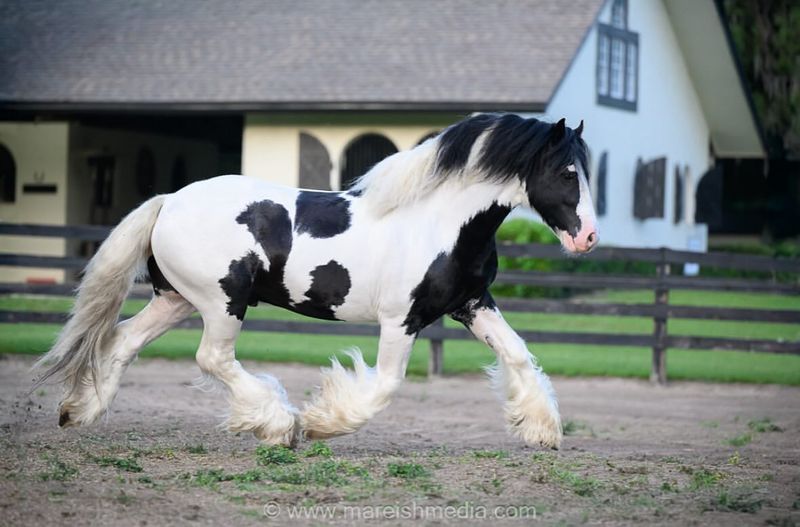
Gypsy Vanners, with their luxurious manes and feathered legs, bring a sense of whimsy and enchantment to equine therapy. Known for their gentle and friendly nature, these horses are excellent companions for individuals seeking emotional and physical support.
Their approachable demeanor makes them suitable for participants of all ages, providing comfort and stability in therapeutic settings. Gypsy Vanners are particularly effective in fostering self-esteem and confidence, offering a nurturing presence that encourages growth and healing.
The breed’s unique appearance often captivates participants, sparking curiosity and engagement. Their intelligence and willingness to please allow them to adapt to various therapeutic activities, making them a versatile choice for equine therapy.
Overall, the Gypsy Vanner’s combination of charm, gentleness, and versatility makes them a beloved partner in the therapeutic process.
10. Haflinger
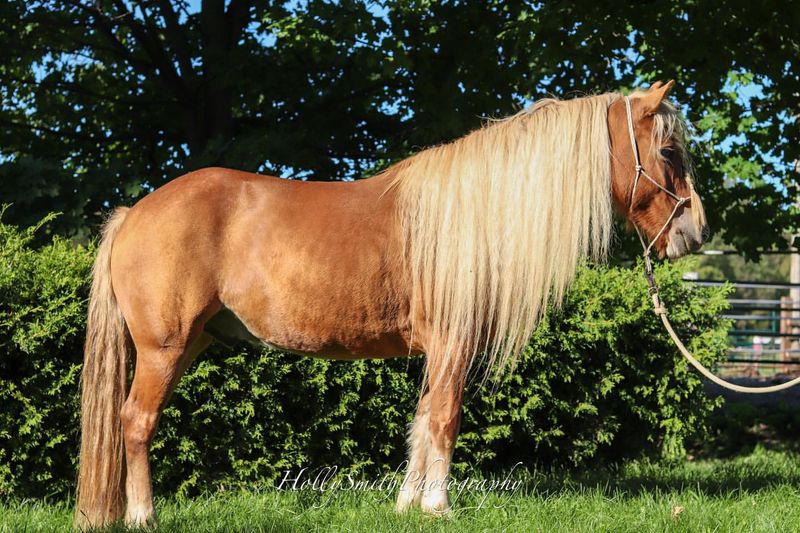
Haflingers, with their sturdy build and cheerful disposition, bring warmth and positivity to equine therapy. Known for their golden chestnut coats and flaxen manes, these horses are as beautiful as they are reliable.
Their gentle and patient nature makes them ideal for individuals seeking emotional support and companionship. Haflingers excel in providing a calming presence, helping participants feel relaxed and at ease during therapy sessions.
In addition to their emotional support, Haflingers are physically capable and versatile, making them suitable for various therapeutic activities. Their approachable demeanor fosters trust and connection, essential for effective therapy.
The Haflinger’s blend of beauty, reliability, and gentleness makes them a cherished choice in the world of equine therapy.
11. Shetland Pony
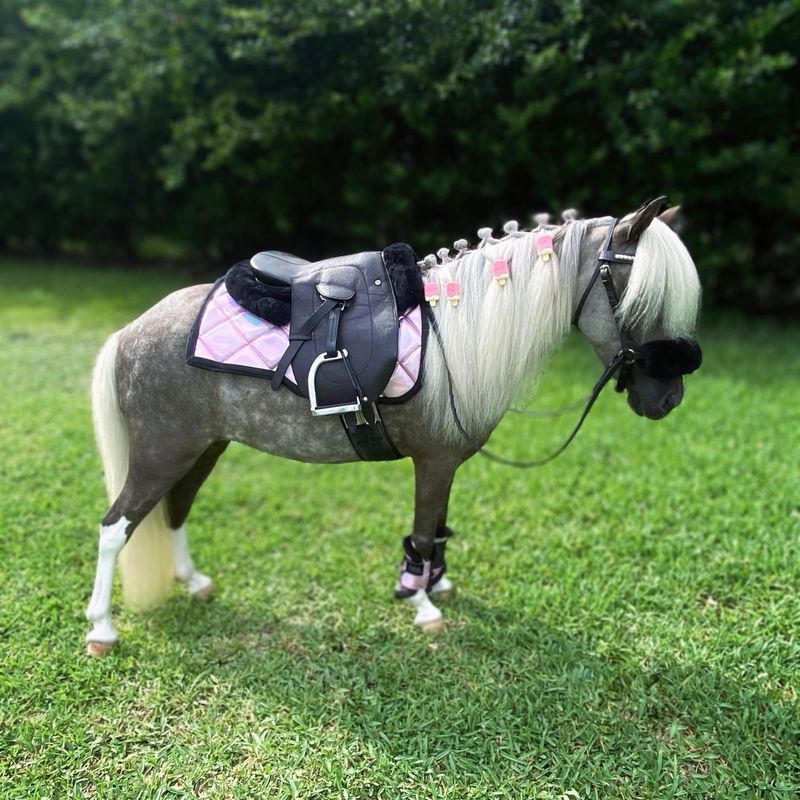
Shetland Ponies, with their small stature and charming appearance, bring a playful and engaging presence to equine therapy. Known for their thick manes and short legs, Shetlands are especially appealing to children, providing comfort and companionship.
Despite their size, Shetland Ponies are strong and resilient, capable of providing physical support during therapy sessions. Their friendly nature makes them approachable, helping to ease anxiety and build trust with participants.
Shetlands are particularly effective in sensory therapy, where their unique appearance and playful demeanor stimulate engagement and interaction. Their ability to connect with participants on a personal level makes them a valuable partner in the therapeutic process.
The Shetland Pony’s combination of charm, strength, and playfulness makes them a delightful choice for equine therapy.
12. Welsh Pony
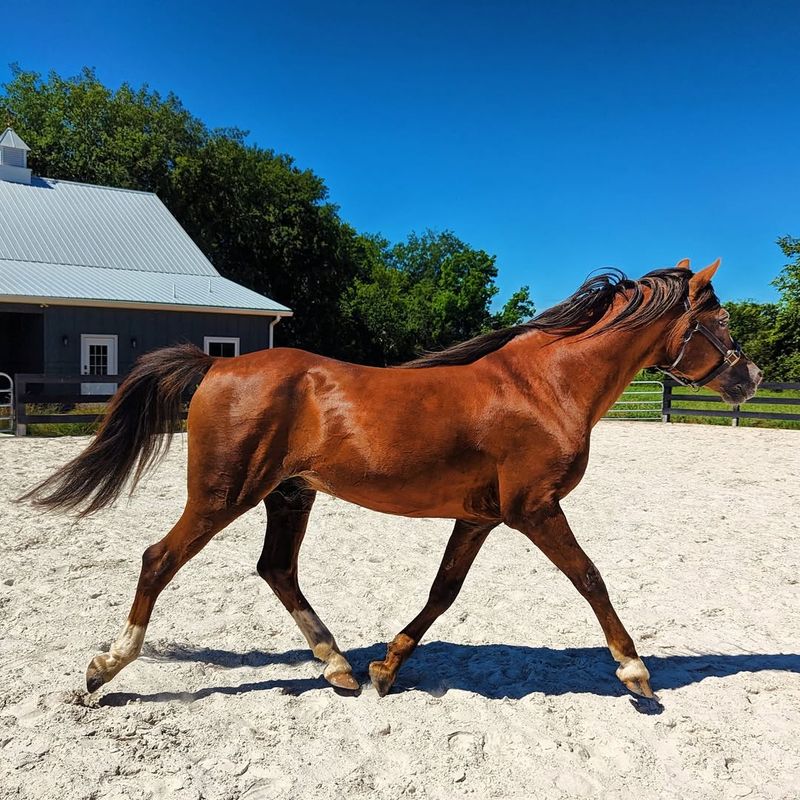
Welsh Ponies, with their spirited nature and lively presence, bring energy and enthusiasm to equine therapy. Known for their shiny coats and lively eyes, these ponies captivate participants, creating an engaging therapeutic environment.
Their energetic demeanor encourages participants to be active and involved, promoting physical activity and engagement during therapy sessions.
Welsh Ponies are excellent at building confidence and self-esteem, helping individuals overcome challenges and achieve personal growth. In addition to their spirited nature, Welsh Ponies are gentle and approachable, making them suitable for participants of all ages.
Their ability to connect with individuals on an emotional level fosters trust and understanding, essential for effective therapy. The Welsh Pony’s combination of energy, charm, and gentleness makes them a valuable partner in equine therapy.
13. Tennessee Walking Horse
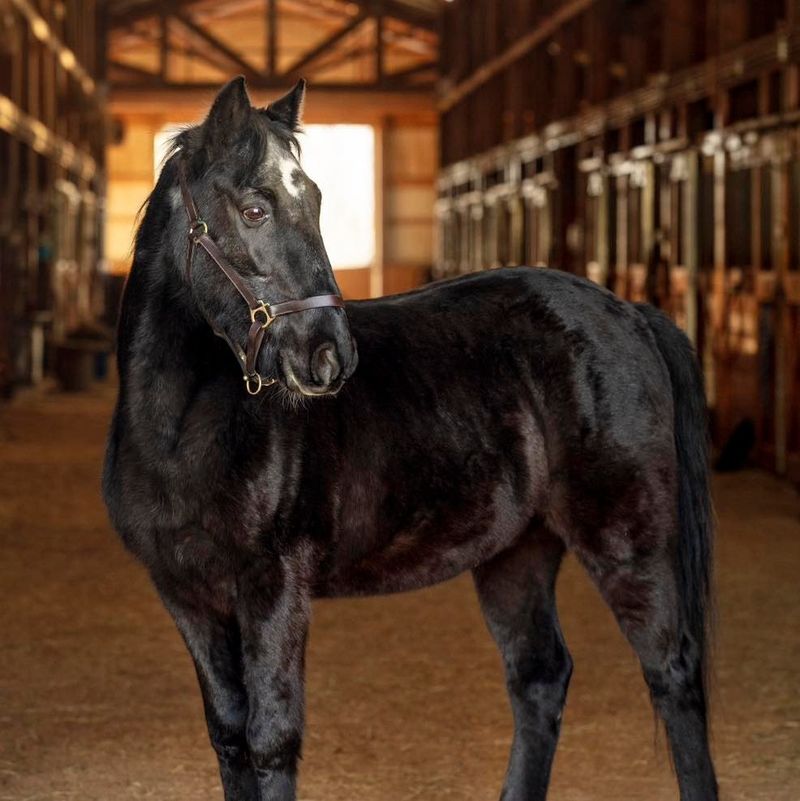
The Tennessee Walking Horse, renowned for its smooth gait and calm demeanor, offers a relaxing and soothing presence in equine therapy. Known for their elegant strides, these horses provide comfort and stability to participants, making them ideal for individuals seeking peace and relaxation.
Their gentle nature and willingness to please make them approachable, fostering trust and connection with therapy participants. Tennessee Walking Horses excel in providing emotional support, helping individuals feel grounded and centered during therapy sessions.
In addition to their emotional support, Tennessee Walking Horses are versatile and capable of participating in various therapeutic activities.
Their smooth gait provides a unique sensory experience, enhancing the therapeutic process. The Tennessee Walking Horse’s combination of grace, gentleness, and versatility makes them a cherished choice in the world of equine therapy.
14. Connemara Pony
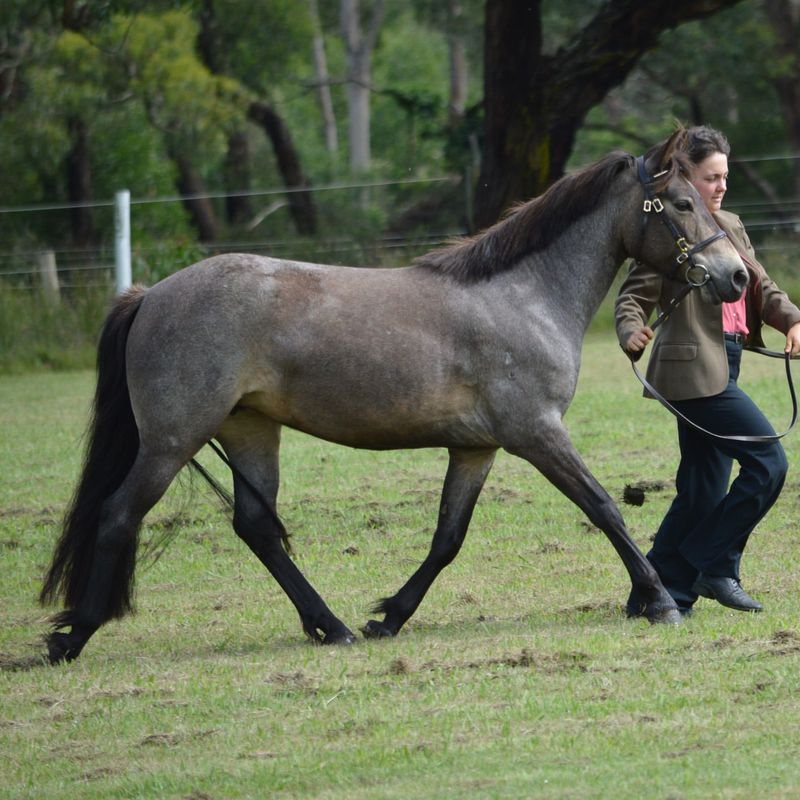
Connemara Ponies, with their graceful appearance and gentle nature, offer a soothing and comforting presence in equine therapy. Known for their soft dappled coats, these ponies provide warmth and companionship to participants, making them ideal for emotional support.
Their calm and patient demeanor makes them approachable, fostering trust and connection with individuals in therapy. Connemara Ponies excel in building confidence and self-esteem, helping participants feel more secure and confident in themselves.
In addition to their emotional support, Connemara Ponies are versatile and capable of participating in various therapeutic activities. Their gentle and understanding nature fosters a sense of safety and security, essential for effective therapy.
The Connemara Pony’s combination of beauty, grace, and gentleness makes them a beloved choice in the world of equine therapy.
15. Shire Horse
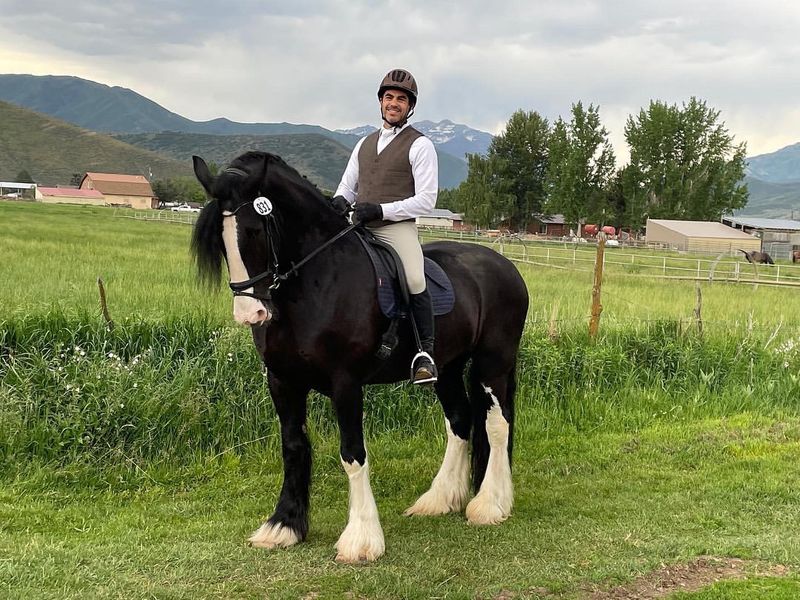
Shire Horses, known for their impressive size and strength, bring a commanding and reassuring presence to equine therapy. Despite their massive stature, Shires are gentle and patient, making them approachable for individuals seeking stability and support.
Their nurturing nature fosters a sense of safety and trust, essential for emotional healing and personal growth. Shires are particularly effective in providing physical support, especially for individuals requiring assistance with balance and coordination.
In therapeutic settings, the Shire Horse’s calm and steady demeanor helps participants feel grounded and secure.
Their ability to connect with individuals on a personal level makes them a valuable partner in the therapeutic process. The Shire Horse’s combination of strength, gentleness, and approachability makes them a cherished choice for equine therapy.

